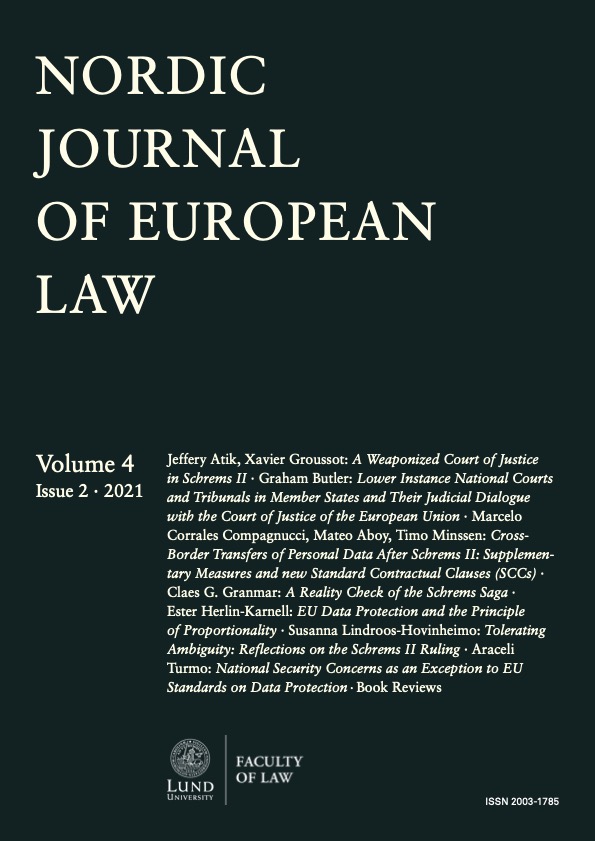A Reality Check of the Schrems Saga
Main Article Content
Abstract
From an enforcement point of view, the revocation of the European Commission’s two adequacy decisions on the federal US system of data protection raises many questions regarding the interrelations between the EU data protection regime and the Union’s legal frameworks for data ‘transfers’. Whereas data uploaded in the Union was once upon a time wired over the Atlantic to be downloaded in the US and vice versa, data packets are nowadays often exchanged over various radio spectra. As online resources around the world can be used to store data, and the data is made available and retrieved from domains rather than ‘exported’ and ‘imported’, the idea that the EU data protection regime would no longer apply when data is ‘transferred’ from the Union easily leads astray. In fact, the location of data or data processing equipment is irrelevant for the applicability of EU law as its territorial scope is determined by the location of the data subjects or undertakings concerned. Whereas the EU legislation applies with regard to legal entities overseas with affiliated undertakings in the Union, the Union seeks to guarantee the EU data subjects an adequate level of protection also in cases of onward transfers of data to non-affiliated organisations and unwarranted interceptions. Furthermore, the European Commission promotes a level of protection in non-EU Member States that is essentially equivalent to that enjoyed under the EU data protection regime since the authorities and courts may refrain from applying EU law pursuant to private international law. However, the Cases which resulted in the revocation of the two adequacy decisions concerned an Austrian citizen filing complaints against an undertaking established in Ireland and its US parent company. Hence, it must be called into question whether the EU data protection regime should at all have been substituted by the US system irrespective of whether it provided an adequate level of data protection. An argument could be made that the adequacy decisions applied beyond the substantive scope of EU law, but that brings questions to fore about the competence of the Union to adopt such decisions. In addition, the procedural system introduced in the first Case regarding Mr. Schrems is rather problematic as it requires national authorities and courts to assess the validity of adequacy decisions. Besides the distortion of the right for national courts to request preliminary rulings into an obligation to do so, most data subject are reluctant to get involved in disputes about the entire legal regime. In many instances, the data subject may rather rely on her or his procedural rights as a consumer. In this article, a systematic analysis of these aspects of the EU privacy safeguards is provided.
Article Details

This work is licensed under a Creative Commons Attribution-NonCommercial-NoDerivatives 4.0 International License.

